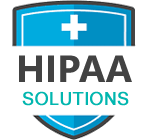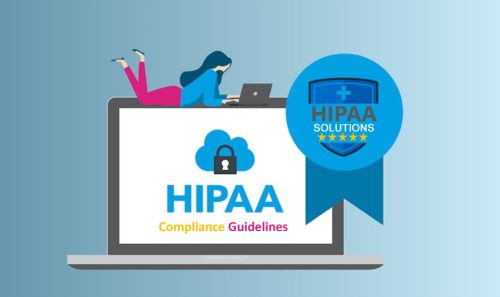
HIPAA Compliance for Hospitals, Clinics & Healthcare Centers
HIPAA compliance for hospitals, clinics and healthcare centers is crucial to safeguarding patient information and maintaining the trust of your patients. But how do you ensure your hospital remains compliant with ever-changing regulations? In this article, we’ll explore some essential steps and best practices to help your hospital stay on top of HIPAA compliance while maintaining data privacy. Let’s dive in!
Unprecedented HIPAA Breaches from Hospital & Clinic vulnerabilities
In recent years, the healthcare industry has witnessed a staggering increase in HIPAA breaches, putting the privacy and security of millions of patients at risk. According to the U.S. Department of Health and Human Services’ (HHS) breach portal, since 2009, over 3,700 breaches affecting over 270 million individuals have been reported, with healthcare providers and clinics accounting for more than half of these incidents.
One of the most significant data breaches took place in 2015, involving the Anthem health insurance company, which compromised the personal data of nearly 79 million people. Another glaring example is the 2020 breach at Magellan Health, where hackers gained unauthorized access to 1.7 million patient records.
These alarming statistics highlight the importance of HIPAA compliance for hospitals, clinics and healthcare centers to invest in robust data security measures and adhere to strict HIPAA guidelines to safeguard patient information. Healthcare providers must recognize the potential devastating consequences of these breaches, both legally and reputation-wise, and take appropriate actions to prevent future occurrences.
How to Ensure HIPAA Compliance for Hospitals and Clinics
- Understand HIPAA regulations: To ensure compliance, it’s essential to have a thorough understanding of the Health Insurance Portability and Accountability Act (HIPAA) regulations. Familiarize yourself with the Privacy Rule, Security Rule, and Breach Notification Rule to better comprehend your hospital’s responsibilities.
- Establish a dedicated compliance team: Assign a privacy officer and security officer responsible for overseeing HIPAA compliance within the hospital. These individuals will ensure the hospital’s adherence to all regulations and help create a culture of privacy and security awareness.
- Develop and maintain policies and procedures: Implement comprehensive policies and procedures that address every aspect of HIPAA Compliance for Hospital or clinic. Regularly review and update these documents to stay current with regulatory changes.
You can also checkout the HIPAA Compliance Checklist for self audit and assessment.
Best Practices: HIPAA Compliance for Hospitals and Clinics
- Conduct regular risk assessments: A HIPAA risk assessment is a vital component of maintaining compliance. Identify potential risks and vulnerabilities in your hospital’s data protection system and implement corrective measures accordingly.
- Provide ongoing staff training: Regular HIPAA training programs for hospital staff are critical to ensure they understand and adhere to the regulations. Offer training at least annually, or whenever there are significant changes to HIPAA rules or hospital policies.
- Encrypt electronic protected health information (ePHI): Protect ePHI from unauthorized access by implementing encryption technologies for data at rest and in transit.
- Implement access controls: Limit access to ePHI based on the principle of “minimum necessary.” Assign unique user IDs and strong passwords for all employees, and regularly review and update access permissions.
Strategies for Maintaining Data Privacy in Hospitals and Clinics
- Establish a robust incident response plan: Develop a clear and actionable plan outlining the steps to be taken in case of a security incident, including reporting the breach, mitigating damages, and preventing future occurrences.
- Monitor and audit system activity: Regularly monitor and audit your hospital’s electronic systems and networks to detect and prevent unauthorized access, data breaches, or other suspicious activities.
- Secure physical access: Implement physical security measures such as locked doors, access badges, and video surveillance to safeguard sensitive data and equipment.
- Dispose of data securely: When disposing of old devices or hard copies containing patient information, follow secure data destruction procedures to prevent unauthorized access.
HIPAA Training Programs for Hospital/Clinic Staff
- Establish a comprehensive training program: Create a thorough HIPAA training program tailored to the specific needs of your hospital. This should include modules on the Privacy Rule, Security Rule, and Breach Notification Rule, as well as any relevant hospital-specific policies and procedures.
- Target various staff roles: Ensure that your training program addresses the unique requirements of different staff roles, such as administrative personnel, healthcare providers, and IT staff. Customize the content to address the specific responsibilities and concerns of each group.
- Offer different training formats: To accommodate diverse learning styles and preferences, provide training in various formats such as in-person workshops, e-learning courses, and webinars.
- Monitor and track progress: Keep track of each employee’s training progress and completion status. This will help you identify any gaps in knowledge and ensure that all staff members are up-to-date with the latest HIPAA regulations and best practices.
Implementing the HIPAA Security Rule in Hospitals and Clinics
- Conduct a thorough risk analysis: Begin by performing a comprehensive risk analysis to identify potential threats and vulnerabilities to the confidentiality, integrity, and availability of electronic protected health information (ePHI) within your hospital.
- Implement administrative safeguards: Develop a formal security management process, assign a dedicated security officer, and establish policies for workforce security and security incident procedures.
- Implement technical safeguards: Deploy technical safeguards such as access controls, audit controls, and encryption to protect ePHI from unauthorized access or alteration.
- Implement physical safeguards: Secure your hospital’s facilities and equipment by implementing physical access controls, workstation security measures, and proper device and media disposal procedures.
How Hospitals and Clinics Can Comply with the HIPAA Privacy Rule
- Appoint a privacy officer: Designate a privacy officer responsible for developing and implementing privacy policies and procedures, as well as overseeing ongoing compliance efforts.
- Develop privacy policies and procedures: Create comprehensive privacy policies and procedures that address the use and disclosure of protected health information (PHI), individuals’ rights to access their PHI, and the hospital’s responsibilities under the Privacy Rule.
- Train staff on privacy policies: Ensure all hospital staff receive regular training on the Privacy Rule and your hospital’s privacy policies and procedures. This will help foster a culture of privacy awareness and adherence.
- Establish a process for handling patient requests: Implement a streamlined and efficient process for handling patient requests related to their PHI, such as requests for access, amendment, or restriction of disclosures.
- Monitor and enforce compliance: Regularly audit your hospital’s privacy practices and promptly address any identified issues or violations. This will help maintain ongoing compliance with the HIPAA Privacy Rule and demonstrate your commitment to patient privacy.
By implementing these strategies and best practices, you can effectively maintain HIPAA compliance for hospitals and clinics with both the HIPAA Security Rule and Privacy Rule, ensuring the protection of patient data and fostering trust among patients and the wider healthcare community.
Steps to Follow After a HIPAA Breach in a Hospital or Clinic
- Identify and contain the breach: Upon discovering a breach, immediately take steps to contain it and prevent further unauthorized access or disclosure of protected health information (PHI).
- Notify the hospital’s privacy officer: Inform your privacy officer about the breach, providing all relevant details to help them assess the situation and coordinate the response.
- Conduct a risk assessment: Determine the extent and impact of the breach, including the types of PHI involved, the number of individuals affected, and the potential risks to patient privacy.
- Notify affected individuals: If required by the Breach Notification Rule, promptly notify affected individuals of the breach, explaining the nature of the incident, the steps taken to mitigate it, and any recommended actions they should take.
- Report the breach to the Department of Health and Human Services (HHS): Depending on the severity and size of the breach, report the incident to HHS either within 60 days of discovery or at the end of the calendar year.
- Implement corrective actions: Based on the findings of your risk assessment, take appropriate corrective actions to address the underlying causes of the breach and prevent future occurrences.
Preparing for a HIPAA Audit in a Hospital/Clinic Settings
- Review and update policies and procedures: Ensure your hospital’s HIPAA-related policies and procedures are up-to-date, comprehensive, and fully compliant with the Privacy, Security, and Breach Notification Rules.
- Conduct internal audits: Regularly perform internal audits to identify potential areas of non-compliance and address them proactively.
- Train staff: Ensure all staff members are knowledgeable about HIPAA regulations and your hospital’s policies and procedures. This will help demonstrate a commitment to compliance during an audit.
- Organize and maintain documentation: Keep all relevant documentation organized and easily accessible, including risk assessments, policies and procedures, training records, and breach notifications.
- Develop a response plan: Create a detailed plan outlining how your hospital will respond to a HIPAA audit, including the roles and responsibilities of staff members and the process for gathering and presenting necessary information.
Performing a HIPAA Risk Assessment for Hospitals and Clinics
Risk assessment is an vital part of HIPAA Compliance for hospitals and clinics:
- Identify where PHI is stored, transmitted, and processed: Develop an inventory of all systems, devices, and applications that handle PHI within your hospital.
- Analyze potential threats and vulnerabilities: Assess the likelihood and potential impact of various threats to the confidentiality, integrity, and availability of PHI, including both external threats (such as cyberattacks) and internal threats (such as human error).
- Evaluate current security measures: Assess the effectiveness of your hospital’s existing security measures, including administrative, technical, and physical safeguards.
- Prioritize risks and develop a risk management plan: Rank identified risks based on their potential impact and likelihood, and develop a plan to mitigate or eliminate those risks.
- Document your findings: Thoroughly document the risk assessment process, including the identified risks, the analysis, and the risk management plan.
Common HIPAA Violations in Hospitals/Clinics and How to Prevent Them
- Unauthorized access to PHI: Limit access to PHI on a need-to-know basis, implement unique user IDs and strong passwords, and regularly review and update access permissions.
- Inadequate staff training: Provide ongoing, comprehensive HIPAA training to all hospital staff, ensuring they understand their responsibilities and the potential consequences of non-compliance.
- Lack of encryption: Encrypt all electronic PHI, both at rest and in transit, to protect it from unauthorized access or disclosure.
- Improper disposal of PHI: Follow secure disposal procedures for both electronic and paper records containing PHI, such as shredding or securely wiping data from devices.
- Insufficient risk assessments: Conduct regular, thorough risk assessments to identify and address.
HIPAA compliance for hospitals is an ongoing process that requires constant vigilance and dedication. By following the steps and best practices outlined in this article, you can ensure your hospital maintains a high level of data privacy and security, while fostering a culture of compliance. Stay informed and proactive, and your hospital will be well-equipped to tackle the challenges of HIPAA compliance head-on.

